MPs call for wider NI Troubles 'amnesty'
- Published
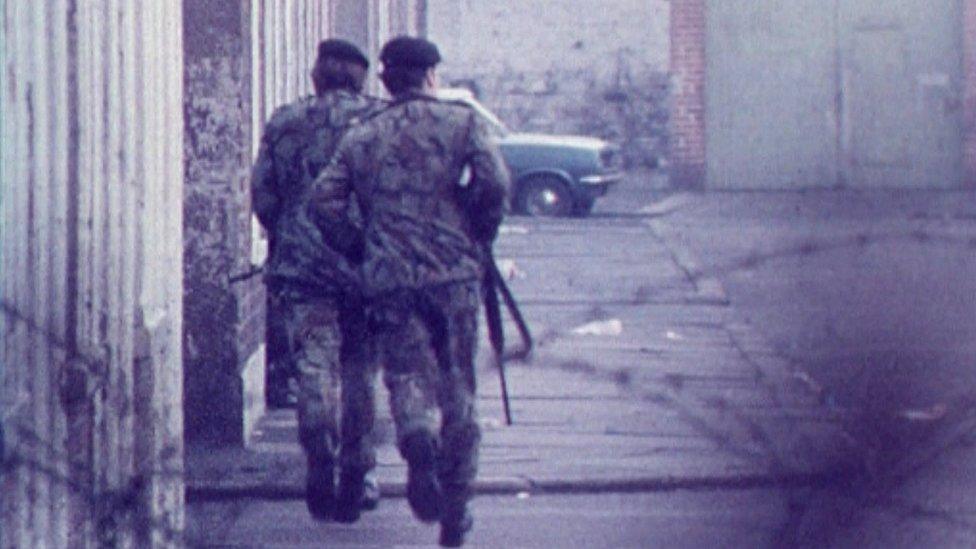
The MPs argue that an amnesty reserved only for members of the security forces would be open to legal challenge
Four MPs have called for new legislation to prevent anyone accused of crimes linked to the Troubles in Northern Ireland from being prosecuted.
Their proposal would provide an effective amnesty to both members of the security forces and paramilitaries.
The campaign is led by two Conservative MPs and two Labour MPs.
Last month, NI politicians expressed concern over a government proposal for a statute of limitations on Troubles related cases.
So far, no soldier has been convicted in such circumstances, however, there is still debate about the extent to which early release might or might not apply to soldiers.
The letter to Prime Minister Theresa May was co-signed by:
Conservative MP Julian Lewis, chairman of the Commons Defence select committee
Labour MP Kevan Jones, a former defence minister
Labour MP Dan Jarvis, a former paratrooper
Conservative MP for Plymouth Johnny Mercer, a former Army captain
The letter said expert evidence to the defence committee indicated a statute of limitation that only covered security force members would "fall foul" of international law.
It urged Mrs May to widen the proposed statute of limitations to include anyone facing prosecution in Troubles-related cases.
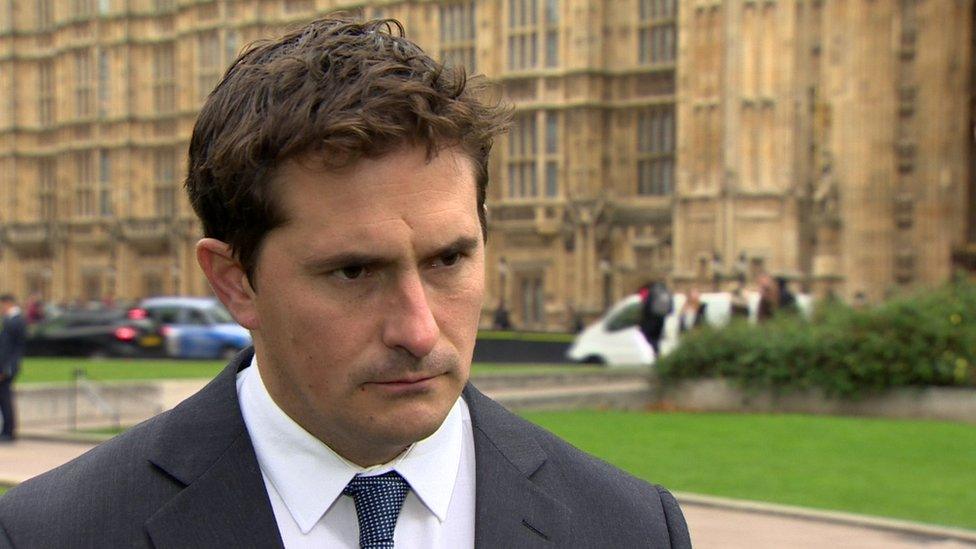
Johnny Mercer MP has urged the prime minister to legislate for a statue of limitations for Troubles related cases
Speaking to BBC News NI, Mr Mercer said he was not prepared to see pensioners who have served in the military in Northern Ireland "dragged to court".
He said the endless cycle of litigation was not delivering for victims and their families and it was simply "lining the pockets of lawyers".
"In an ideal world you would like to hold people to account, and for people to serve their time if they're convicted of a crime," he said.
"We have to be realistic about the chances of that and make sure we deliver for the victims; and we also have to make sure processes are not abused to try to rewrite history for political ends."
Open to challenge
Last week, Northern Ireland's outgoing director of public prosecutions (DPP), Barra McGrory, said the partial amnesty for the security forces could be open to challenge.
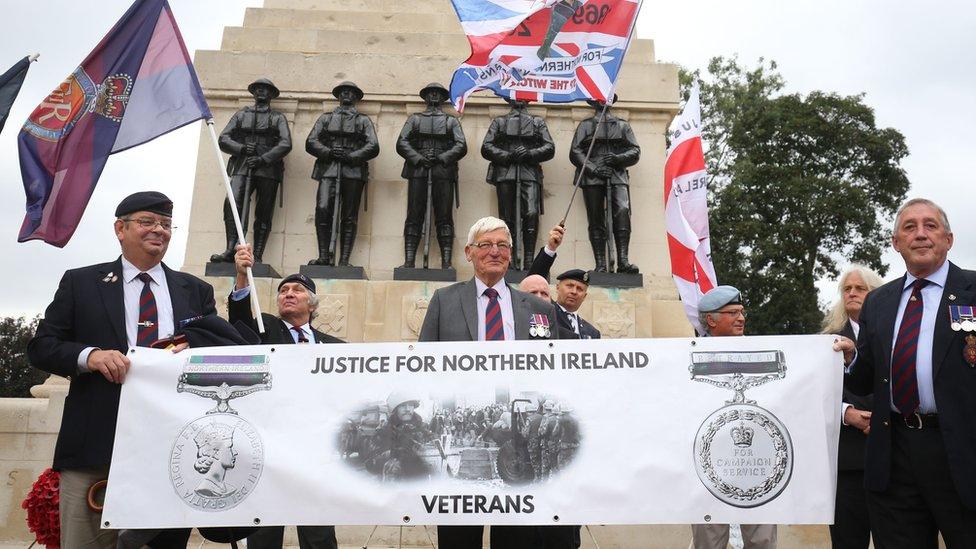
There has been a high-profile campaign to end the prosecution of former members of the security forces
He also defended his role in prosecuting former soldiers and said criticism that his office had unfairly prioritised military cases was "unfounded" and "contrary to the evidence of our decision making".
Last month, both republican and unionists leaders spoke out against the proposal which was included in a public consultation on ways to deal with the legacy of the Troubles.
Sinn Féin accused the government of acting in bad faith by suggesting an amnesty for former soldiers.
DUP leader Arlene Foster said she understood the motivation, but was concerned it could lead to a wider amnesty for paramilitaries.
The amnesty consultation followed a campaign by veterans' supporters who claim former soldiers are being disproportionately targeted in Troubles-related prosecutions.
That claim has been consistently rejected by Northern Ireland's Public Prosecution Service.
- Published1 December 2017
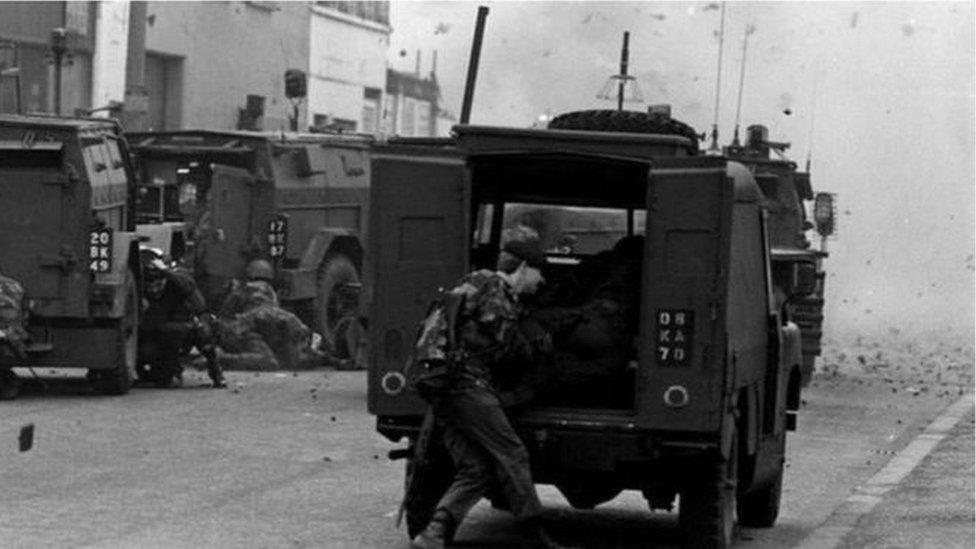
- Published24 November 2017
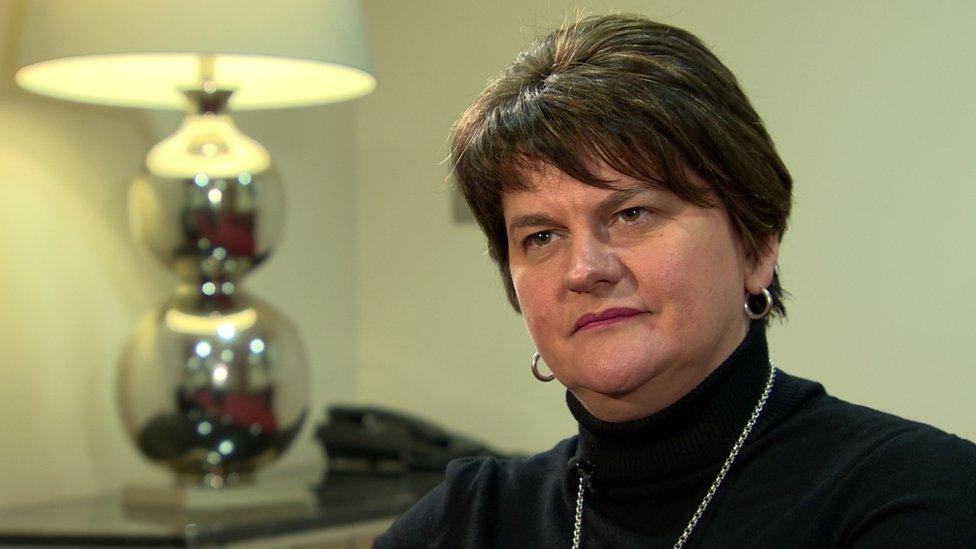
- Published21 November 2017
